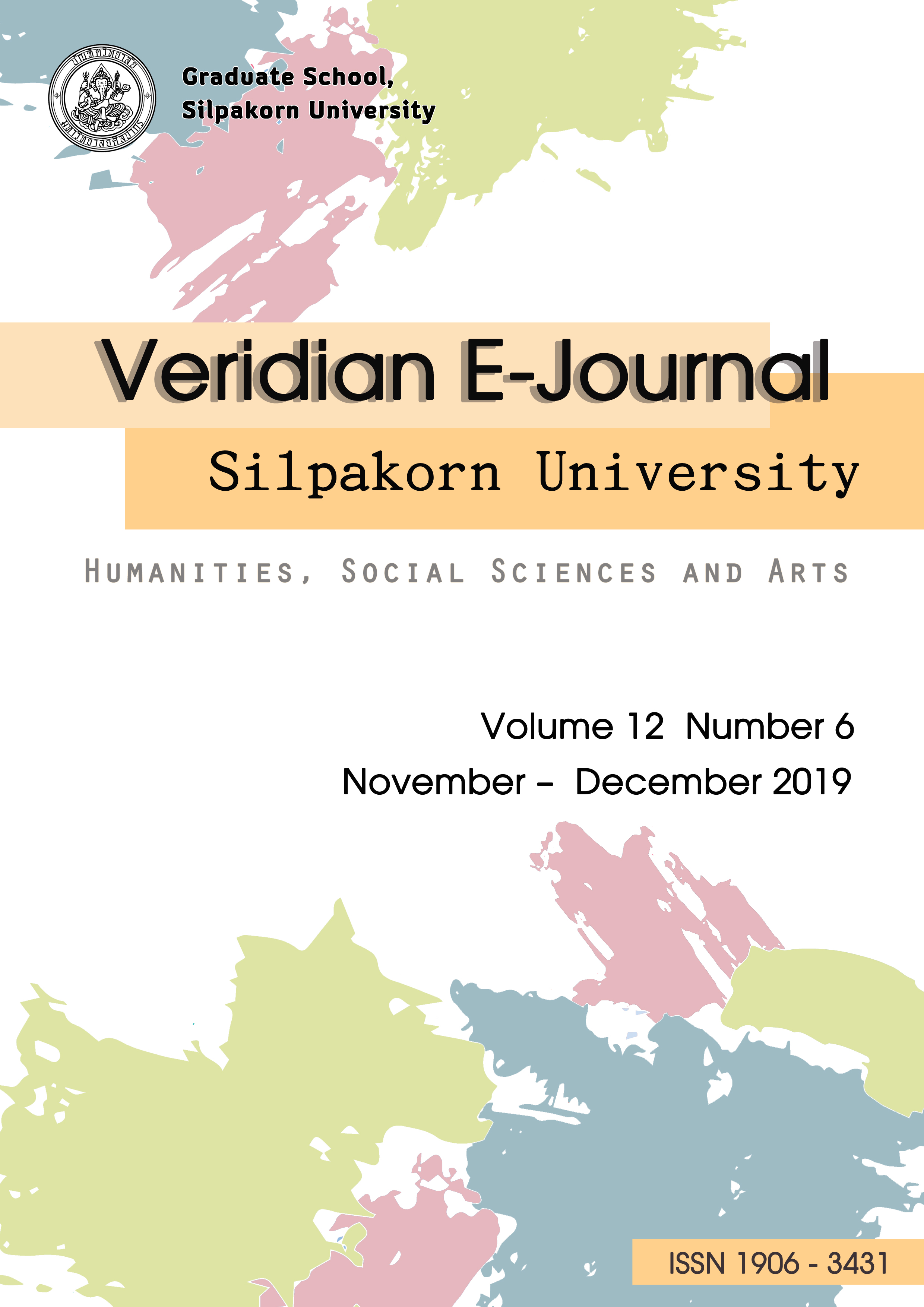ปัจจัยการยอมรับและการใช้งานแพลตฟอร์มเทคโนโลยีการทำงานร่วมกันของ กลุ่มบุคคลเจเนอเรชั่นซี (Factors Affecting Acceptance and Use of Collaboration Technology Platforms of the Generation Z)
Main Article Content
Abstract
การวิจัยครั้งนี้มีวัตถุประสงค์เพื่อศึกษาถึง 1) ผลกระทบของปัจจัยด้านความคาดหวังในประสิทธิภาพ ความคาดหวังในความพยายาม อิทธิพลทางสังคม สภาพสิ่งอำนวยความสะดวกสบายในการใช้งาน และความเข้ากันได้ที่ส่งผลต่อการยอมรับและใช้งานแพลตฟอร์มเทคโนโลยีการทำงานร่วมกันของกลุ่มบุคคลเจเนอเรชั่นซี และ 2) อิทธิพลทางตรงและอิทธิพลรวมของปัจจัยด้านความคาดหวังในประสิทธิภาพ ความคาดหวังในความพยายาม อิทธิพลทางสังคม สภาพวิ่งอำนวยความสะดวกสบายในการใช้งาน และความเข้ากันได้ที่ส่งผลต่อการยอมรับและใช้งานแพลตฟอร์มเทคโนโลยีการทำงานร่วมกันของกลุ่มบุคคลเจเนอเรชั่นซี เครื่องมือที่ใช้ในงานวิจัย คือ แบบสอบถามซึ่งพัฒนามาจากการทบทวนวรรณกรรม และการตรวจสอบความเที่ยง โดยการทดสอบค่าสัมประสิทธิ์ครอนบาคอัลฟ่า แบบสอบถามได้กระจายแก่กลุ่มตัวอย่างซึ่งเป็นกลุ่มบุคคลเจเนอเรชั่นซี และมีประสบการณ์ในการใช้แพลตฟอร์มเทคโนโลยีการทำงานร่วมกัน จำนวน 400 คน โดยใช้วิธีการสุ่มตัวอย่าง แบบง่าย วิเคราะห์ตัวแบบสมการโครงสร้างด้วยเทคนิควิธี Partial Least Square
ผลการวิจัยพบว่า ปัจจัยด้านความเข้ากันได้เป็นปัจจัยสำคัญที่สุดที่ส่งผลเชิงบวกต่อการยอมรับและใช้งานแพลตฟอร์มเทคโนโลยีการทำงานร่วมกันของกลุ่มบุคคลเจเนอเรชั่นซี นอกจากนี้ ปัจจัยด้านความเข้ากันได้ยังมีอิทธิพลทางตรงต่อการยอมรับและใช้งานแพลตฟอร์มเทคโนโลยีการทำงานร่วมกันของกลุ่มบุคคลเจเนอเรชั่นซี มากที่สุด (DE=0.618, P< 0.001) อย่างมีนัยสำคัญทางสถิติ
The purposes of this study were to investigate 1) the effect of performance expectancy, effort expectancy, social influence, facilitating conditions and compatibility on acceptance and use of collaboration technology platforms of the generation Z; and 2) the direct effect and total effect of performance expectancy, effort expectancy, social influence, facilitating conditions and compatibility on acceptance and use of collaboration technology platforms of the generation Z. The study used a questionnaire developed by reviewing the literature and test the reliability by coefficient alpha. The questionnaire was distributed to 400 samples that have experience in the use of collaboration technology platforms by simple random sampling. The Structural equation model analysis by Partial Least Squares technique.
The results showed that the most factor that have a statistically significant positive effects on acceptance and use of collaboration technology platforms of the generation Z was the compatibility. Moreover, the compatibility had a statistically significant direct effect on acceptance and use of collaboration technology platforms of the generation Z (DE=0.618, P < 0.001).

